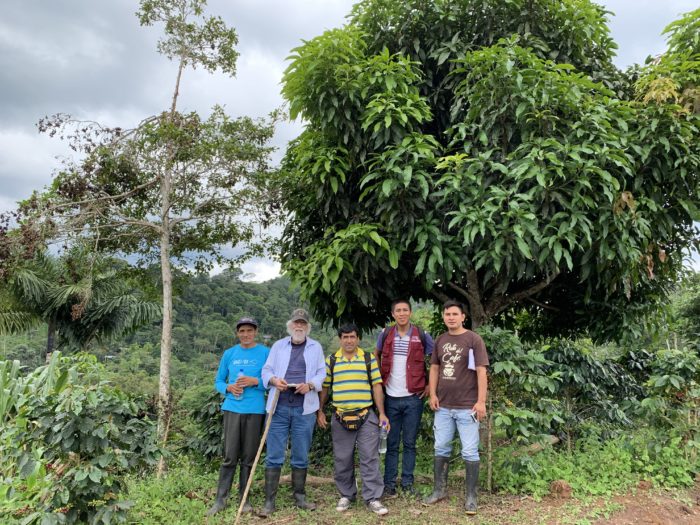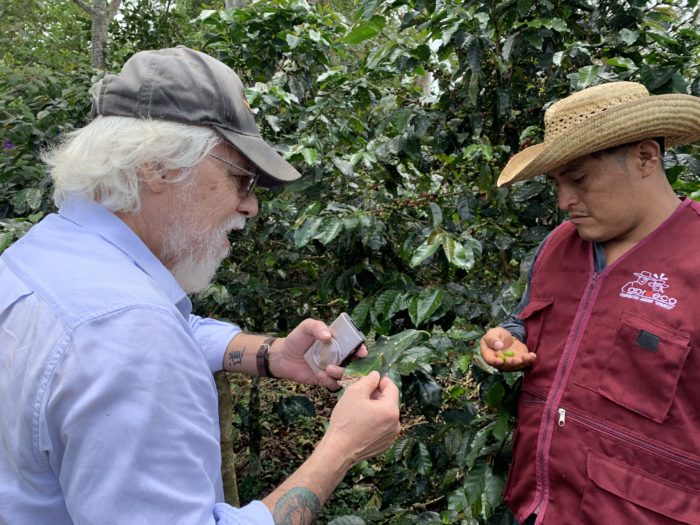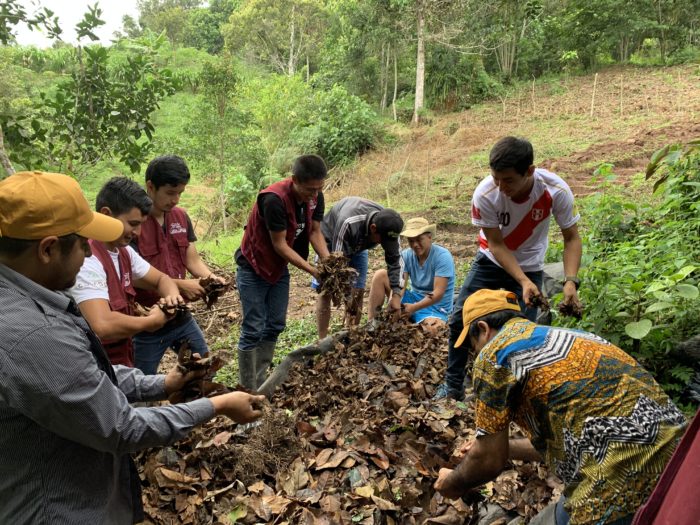
The Aproeco cooperative is located in Moyobamba, the capital of the San Martin region in Peru. Since coffee is the main livelihood of the association’s members, certifications such as Fair Trade are highly important to maintain competitive prices and provide valuable services to members. The Aproeco cooperative currently holds certifications including, Fair Trade, Organics, UTZ, Sustainable Harvest, Rainforest Alliance and Café Practices.
Coffee production is the main livelihood for many communities in the region. Therefore, Aproeco has a significant role to ensure productivity and economic development to its members. The role of the cooperative includes the promotion of sustainable coffee plantation management for an increase in the quality and quantity of coffee produced.
Although the geographic and climatic conditions for cultivating coffee in Moyobamba are ideal, due to its location in the upper part of the Peruvian Amazon rainforest, coffee has not reached the desired yield of production. Some of the reasons include deficient soil management and agronomic practices. NCBA CLUSA’s USAID-funded Farmer to Farmer program sent a highly skilled volunteer to train cooperative members on how to develop a composting system by taking advantage of local resources for an increase in coffee production.

Bill Zimmerman is an experienced science educator, grant manager and primary investigator with technical competencies in agriculture, microbiology and chemistry. Since 1987, Bill has been an international consultant in agricultural-environmental-industrial microbiology. With this experience, he has been embarking on Farmer to Farmer assignments since 2014 and now has 15 assignments under his belt.
Ten of Bill’s 15 prior Farmer to Farmer assignments have included compost training, with objectives ranging from designing municipal organic compost facilities to customized pit or pile techniques for farmers in a given region. He also composted in the United States, and during 2016 was part of the Lincoln University management team for their composting facility. His impressive history made him an ideal candidate for to assist the Aproeco cooperative.
Bill’s assignment took place from February to March of 2020, right before the COVID-19 pandemic forced most of the world into lockdown. When training the young field staff of APROECO, Bill was impressed by their attentiveness, quick grasp of new information, and their mathematic fluency. After the first day, cooperative members performed calculations of bulk density and Air-Filled Pore Space (AFPS) with ease and after a couple of sessions, volunteers utilized pH probes and the revised compost recipe with relative ease. He was able to assist co-op members in recognizing raw materials for compost in the coffee field, which was extremely valuable to the cooperative. Teamwork and mutual respect were always apparent. At the field trainings, the intelligent, thoughtful questions asked by the co-op members during periodic Q&A sessions and hearing the expectations of the trainees was a particular highlight for Bill during his assignment.

As a retiree, Farmer to Farmer is the key for Bill and others to continue professional service in developing nations. Research and transfers of technology to less developed countries were Bill’s primary focus when he was an active scholar. This trip to Peru was the next logical stop for him to teach (and learn).
The Aproeco cooperative, like many businesses around the world, is dealing with the impacts of the COVID-19 pandemic. There was limited access and transit at a national level beginning March 16, 2020. This has resulted in limited job opportunities and work. To this day, free transit is forbidden at a national level, therefore activities are restricted. This will probably mean a variation in coffee quality and then, a difference in coffee pricing. The pandemic has substantially limited the relations between communities and the cooperative but Aproeco is currently working on storing coffee and administrative activities for the time-being.


